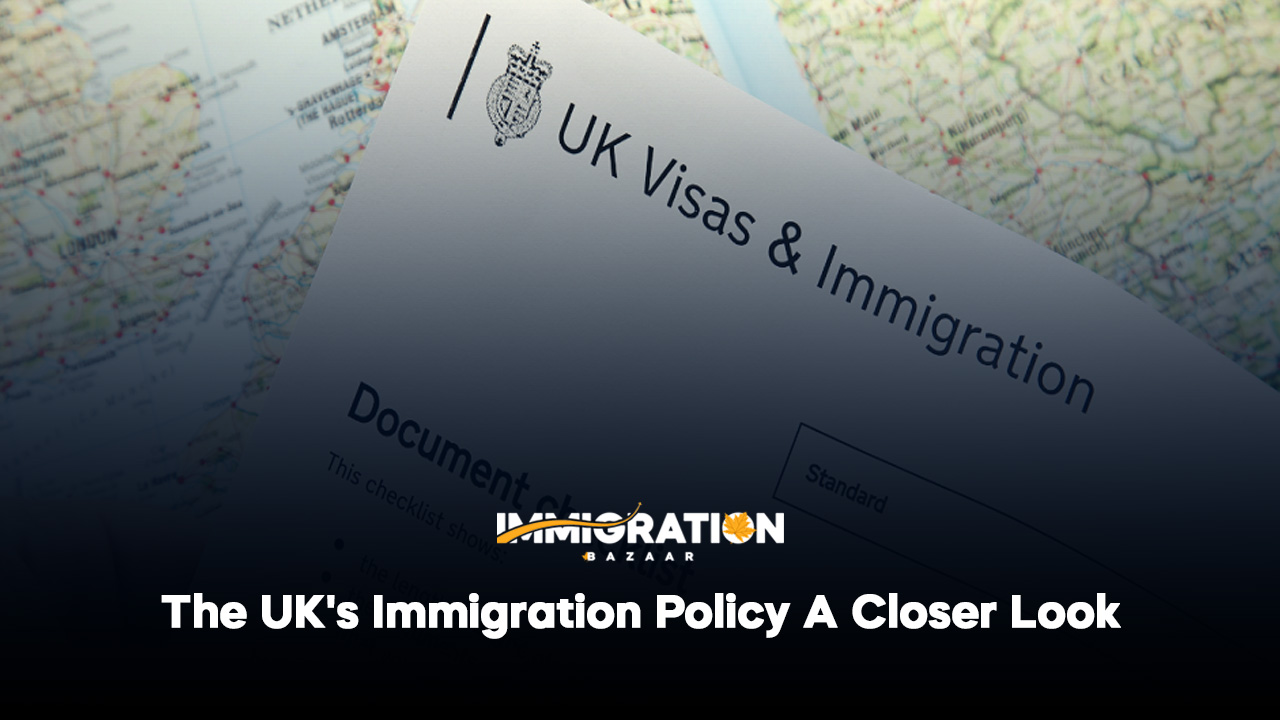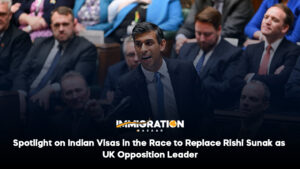Introduction
The recent statements from Robert Jenrick, a member of Rishi Sunak’s Conservative Party, have highlighted the UK government’s firm stance on illegal immigration. With 250,000 Indians reportedly receiving visas in 2023 while an estimated 100,000 reside illegally in the UK, Jenrick’s remarks underline the growing tension between immigration policy and public sentiment. The proposed increase in penalties and stricter laws against illegal immigrants signifies a pivotal moment in the UK’s approach to immigration, raising questions about the future of visa issuance, particularly for countries with high illegal residency rates.
-
Understanding Illegal Immigration in the UK
1.1 Current Statistics and Context
Illegal immigration has become a contentious issue in the UK, with a focus on the estimated number of undocumented migrants. Reports suggest that a significant proportion of these individuals come from countries with existing immigration pathways but fail to adhere to visa regulations. According to various studies, the undocumented population in the UK is predominantly made up of individuals from nations where migrants may find it challenging to navigate complex visa processes or face obstacles in their home countries.
1.2 Government Concerns
The UK government is particularly concerned about the economic implications of illegal immigration. Undocumented migrants often work in sectors with little oversight, which can undermine wages and working conditions for legal residents. This has prompted calls for stricter immigration controls, as noted by Jenrick’s emphasis on the need for more robust legislation to deter illegal immigration.
-
Policy Proposals by Robert Jenrick
2.1 Stricter Immigration Laws
Jenrick’s announcement of plans for stricter immigration laws and deposit requirements aims to create a more rigorous framework for managing undocumented migrants. By proposing four to five times stricter laws, the Conservative Party seeks to instill a sense of accountability among both employers and migrants. This could involve measures such as increased penalties for employers who hire illegal workers and enhanced border security to prevent unauthorized entry.
2.2 Diplomatic Considerations
Jenrick’s assertion that the UK should not issue visas to citizens of countries that allow illegal immigration highlights a potentially controversial diplomatic approach. This strategy could strain relations with countries that are seen as contributors to the illegal immigration issue. It raises questions about the balance between diplomatic relations and the need for effective immigration control.
-
Public Sentiment and Political Ramifications
3.1 Shifting Attitudes Towards Immigration
Public sentiment regarding immigration has evolved in recent years, influenced by economic factors, social dynamics, and political rhetoric. A significant portion of the UK electorate is increasingly concerned about the impacts of immigration on public services, job availability, and community cohesion. This sentiment has been harnessed by political leaders to advocate for stricter immigration policies, reflecting a growing demand for governmental action.
3.2 Political Landscape
As the Conservative Party positions itself for potential future leadership, immigration will likely remain a central theme in their platform. Jenrick’s statements suggest a strategy aimed at appeasing constituents who prioritize immigration control. As the political landscape shifts, parties that fail to address public concerns about immigration may find themselves at a disadvantage in future elections.
-
Implications for Indian Nationals
4.1 Visa Statistics and Trends
In 2023, the UK issued approximately 250,000 visas to Indian nationals, showcasing India’s importance as a source of skilled labor and talent for the UK. However, the revelation that around 100,000 Indians may be living illegally in the UK raises concerns about compliance with immigration regulations and the potential repercussions for future visa applicants.
4.2 Future of Visa Issuance
The proposed changes in immigration policy could lead to stricter scrutiny of visa applications from countries with high rates of illegal immigration. This may result in a more challenging environment for prospective Indian immigrants seeking to study or work in the UK. Increased requirements or penalties could deter potential applicants, impacting the flow of skilled workers from India.
-
The Role of International Students
5.1 Importance of International Students
International students play a crucial role in the UK’s education system and economy. They contribute significantly to the local economy through tuition fees and living expenses, often filling gaps in the labor market during and after their studies. The UK government has recognized the importance of attracting international students, but stricter immigration policies could complicate this objective.
5.2 Future Challenges for International Students
The potential tightening of immigration policies may create challenges for international students, particularly those from India. Stricter visa requirements or an increased focus on illegal immigration could lead to uncertainty and concern among prospective students, potentially impacting their decision to study in the UK.
-
Conclusion
The statements made by Robert Jenrick reflect a significant shift in the UK’s immigration policy landscape. As the government emphasizes the need for stricter measures against illegal immigration, the implications for visa issuance, particularly for Indian nationals, could be profound. The focus on accountability and potential diplomatic repercussions underscores the complex relationship between immigration, international relations, and domestic policy.
As the political climate evolves, it will be essential for prospective immigrants and international students to stay informed about changes in immigration policy and how these may impact their opportunities in the UK. The outcome of these proposed changes will depend on the political landscape and the Conservative Party’s ability to navigate public sentiment while maintaining effective international relations.







